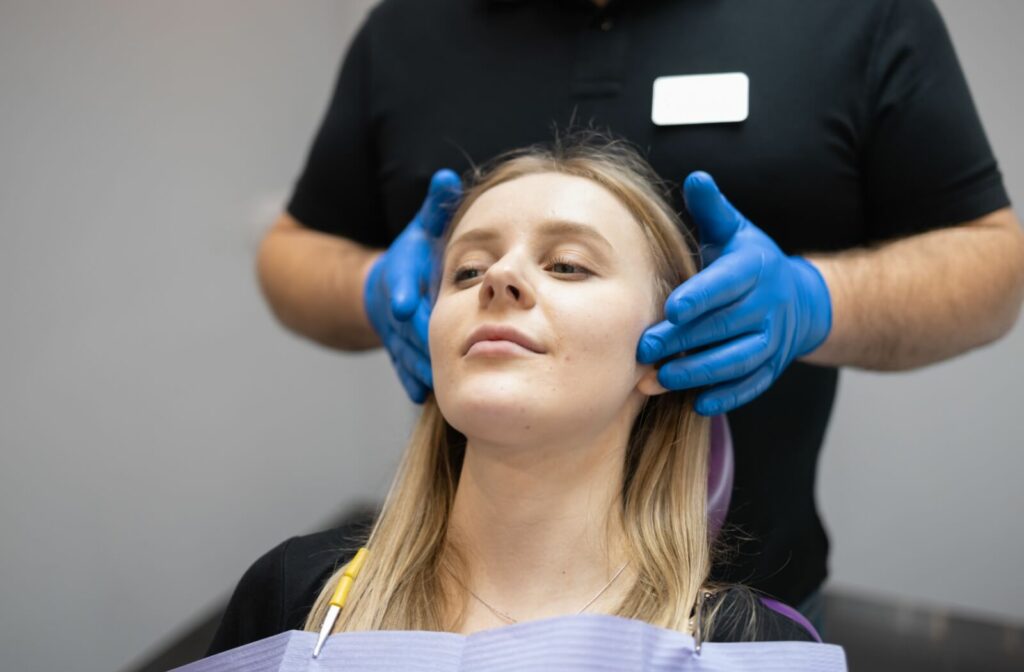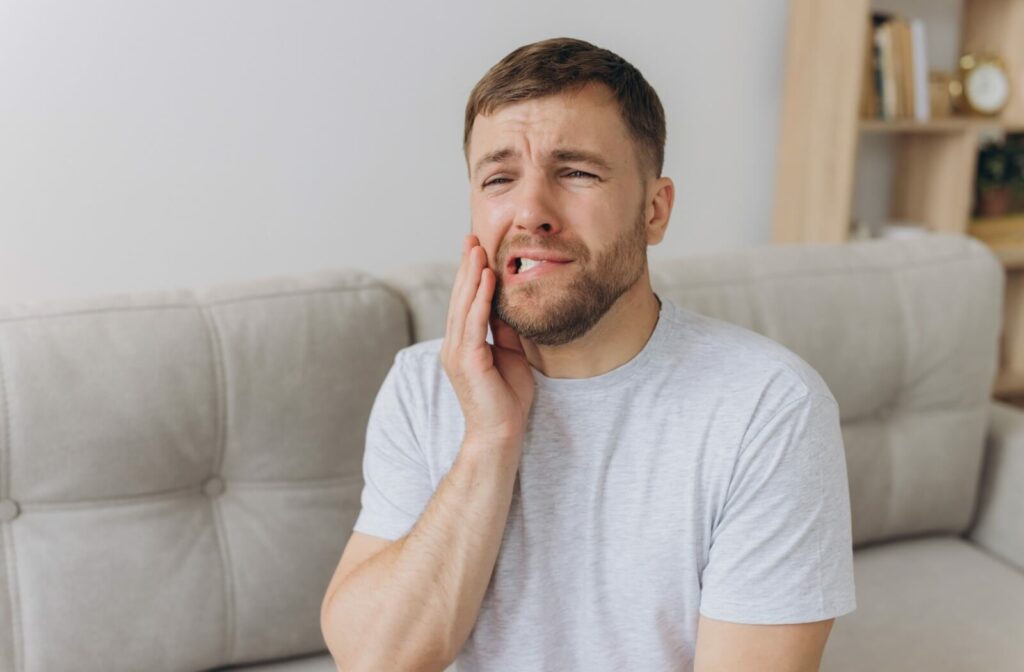Understanding TMJ is essential for anyone experiencing jaw discomfort or pain. Disorders affecting the temporomandibular joint can lead to significant pain and impact daily life. While TMJ doesn’t typically directly affect our teeth, it can still cause your teeth to hurt, in addition to other symptoms, such as jaw pain, clicking sounds, or difficulty in movement.
It’s crucial to seek professional medical advice to ensure proper diagnosis and relief if you’re experiencing persistent symptoms. Through early intervention and informed understanding, managing TMJ effectively is within reach, enhancing overall well-being and quality of life.
Understanding TMJ
TMJ stands for temporomandibular joint, which is the joint that connects your jawbone to your skull. Disorders of this joint, often referred to as TMJ disorders, can cause pain in your jaw joint and in the muscles that control jaw movement.
Symptoms of TMJ
TMJ disorders can manifest in various ways, making it essential to recognize the symptoms early on. Common indicators include:
- Jaw pain or tenderness
- Aching pain around your ear
- Difficulty or discomfort while chewing
- Locking of the joint, making it difficult to open or close your mouth
- A clicking or grating sensation when you open your mouth or chew
Experiencing a combination of these symptoms could signal a TMJ disorder, but it’s essential to consult a healthcare professional for an accurate diagnosis.
Causes of TMJ
Several factors can contribute to the development of TMJ disorders. These include:
- Jaw injury: Trauma to the jaw or head can disrupt the normal functioning of the TMJ
- Arthritis: Conditions like osteoarthritis or rheumatoid arthritis can affect the temporomandibular joint
- Teeth grinding (bruxism): Chronic grinding or teeth clenching can exert excessive pressure on the TMJ
- Stress: High stress levels can lead to muscle tension and jaw clenching, exacerbating TMJ issues
Understanding the root cause of your TMJ disorder is essential for effective treatment and management.
The Connection Between TMJ & Tooth Pain
One of the more perplexing aspects of TMJ disorders is their ability to cause tooth pain. But how exactly does this happen? The jaw muscles and nerves are close to your teeth, so when the joint and surrounding muscles are inflamed or not functioning correctly, it can send pain signals radiating to your teeth. This phenomenon is known as referred pain.
Distinguishing TMJ Tooth Pain from Other Dental Issues
It can be challenging to differentiate between tooth pain caused by TMJ and that arising from other dental issues such as cavities or gum disease. Here are some tips to help you distinguish the two:
- Location of the pain: TMJ-related tooth pain is often diffuse and affects multiple teeth on one side of your mouth
- Pain triggered by jaw movement: If your tooth pain worsens when you open your mouth wide, chew, or speak, it may be related to TMJ
- Absence of other dental symptoms: TMJ-related pain usually doesn’t accompany symptoms like swelling or sensitivity to hot and cold foods, which can be common in other dental problems

When to Seek Professional Help & Available Treatments
It’s crucial to know when to seek professional help. If you experience any of the following, it’s time to consult a healthcare provider:
- Persistent pain lasting more than a week
- Difficulty opening or closing your mouth
- Pain that interferes with your daily life
- Noticeable changes in your bite or jaw alignment
Professional Treatment Options
Once you’ve consulted a professional, several treatment options may be recommended based on the severity of your TMJ disorder:
- Physical therapy: Specialized exercises and treatments can help improve the range of motion and reduce pain
- Dental appliances: Custom-fitted mouthguards can prevent teeth grinding and relieve pressure on the TMJ
- Medications: Pain relievers, anti-inflammatory drugs, muscle relaxants, and even low-dose antidepressants can be effective
- Surgery: In rare, severe cases, surgical interventions like arthroscopy or open-joint surgery may be necessary
Tips for Preventing TMJ Disorders & Maintaining Oral Health
TMJ may often be preventable through lifestyle changes and maintaining good overall oral health.
Lifestyle Changes
Making specific lifestyle changes can significantly reduce the risk of developing TMJ disorders:
- Stress management: Techniques such as yoga, meditation, and deep breathing can help reduce stress and prevent jaw-clenching
- Healthy diet: A diet rich in anti-inflammatory foods can reduce inflammation and promote joint health
- Good posture: Maintaining good posture, especially while working at a desk, can prevent unnecessary strain on your jaw
Regular Dental Exams
Regular dental check-ups are crucial for maintaining oral health and catching potential issues early. Your dentist can also provide personalized advice on preventing TMJ disorders based on your needs.
Talk to Your Dentist About Your TMJ Symptoms
Recognizing the symptoms of TMJ, knowing the causes, and employing effective strategies can significantly reduce your discomfort and improve your quality of life. But if you’re experiencing persistent tooth or jaw pain, don’t hesitate to seek professional help. Early intervention can make a world of difference.
Contact our team at Shin Dentistry to book a dental exam. One of our experienced dentists can examine your teeth and mouth to help you achieve good oral health and a pain-free life.



